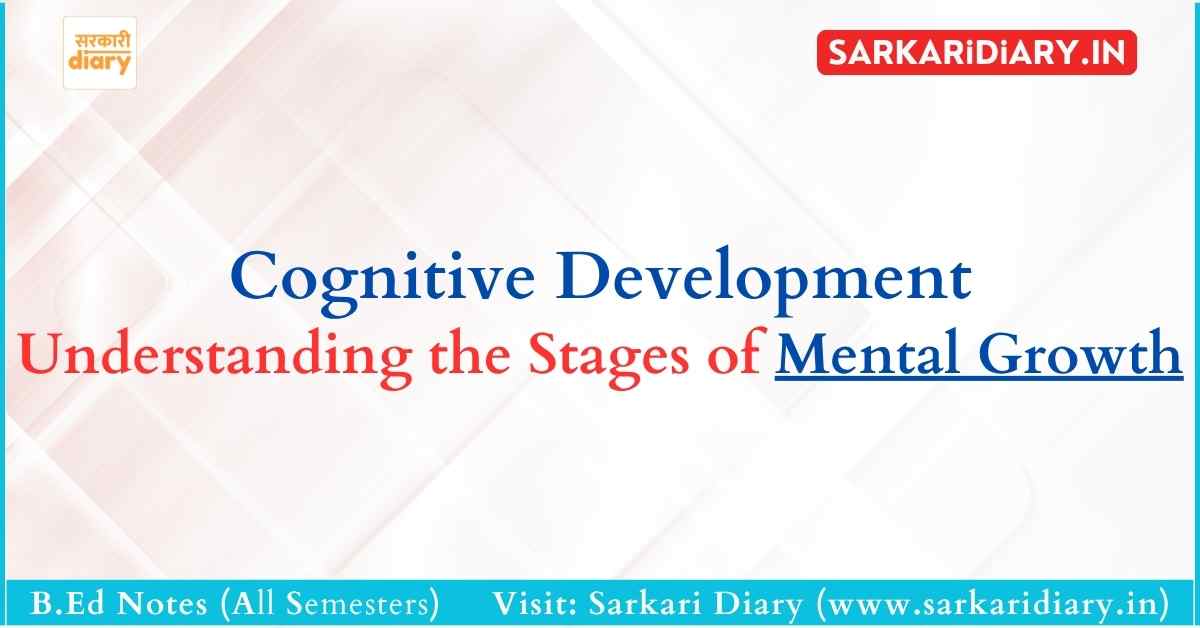Cognitive development refers to the process through which an individual acquires, organises, and utilises knowledge. It encompasses mental functions such as attention, memory, perception, learning, reasoning, problem-solving, and language development.
Understanding cognitive development is essential for educators, as it helps in designing age-appropriate learning experiences and assessing a learner’s readiness for different cognitive tasks.

What is Cognition?
The term cognition refers to the mental activities involved in the process of knowing, understanding, and interpreting the world. It involves the acquisition of knowledge through various means such as:
- Sensory experience (seeing, hearing, touching)
- Observation
- Memory recall
- Logical reasoning
- Problem-solving and decision-making
Definition of Cognitive Development
Cognitive development is the progression of mental abilities and thought processes from infancy through adulthood. It includes:
- Enhancements in attention span
- Growth in concept formation
- Refinement of language and reasoning skills
- Development of critical thinking and judgement
How Cognitive Development Occurs
Cognitive development is influenced by a combination of:
| Sensory Experiences | Provide raw data for learning (e.g., seeing shapes, hearing language) |
| Memory | Helps in retaining and recalling past learning |
| Observation | Supports imitation and learning from the environment |
| Problem-Solving | Encourages logical reasoning and application of concepts |
| Language Skills | Enhance communication and comprehension of abstract ideas |
Stages of Cognitive Development
Many educational psychologists, most notably Jean Piaget, have suggested that cognitive development occurs in structured stages. These stages follow a fixed sequence, although the exact age of transition may vary slightly from one individual to another.
Key Characteristics of Cognitive Stages:
- Each stage builds upon the previous one.
- The sequence of stages remains unchanged across individuals.
- Age may differ, but the order of cognitive growth is universal.
Educators can identify a student’s cognitive stage by observing their behaviours, problem-solving skills, and interactions with their environment.
Why Cognitive Development Matters in Education
Understanding a child’s cognitive development helps teachers to:
- Assess readiness for learning new concepts
- Design appropriate instructional strategies
- Provide the right level of challenge
- Avoid cognitive overload or under-stimulation
- Foster creativity and independent thinking
Conclusion
Cognitive development is a continuous journey that begins at birth and progresses through various stages. It is shaped by a combination of experiences, biological maturation, and social interactions. By recognising the current stage of a learner’s cognitive development, educators can provide targeted and effective instruction, ensuring meaningful and lasting learning.